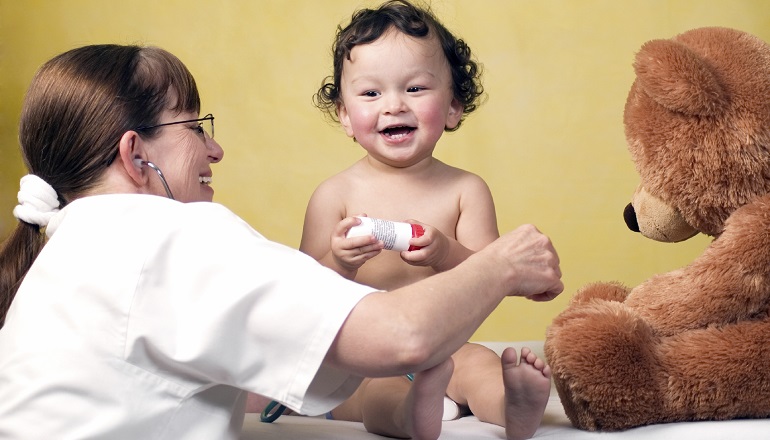When should I look for a pediatrician?
No matter what kind of adoption you’re doing, it’s smart to enlist a pediatrician before you make any other decisions. The American Academy of Pediatrics has a section for adoption medicine, with a directory of members. Several of them offer general pre-adoption consultations by phone for a fairly low fee. They can also help you evaluate a referral, and can refer you to a local pediatrician with a special interest in adoption, who can examine your child when he or she comes home.
How much will I know about the child’s health at referral?
There is no standard set of tests for international adoptees. U.S. embassies mandate tests for HIV, TB, and local infectious diseases before granting the child a visa, but these tests are minimal (and you won’t see the results—you’ll just be told if the child’s visa is being denied). Depending on your country and agency, your referral can be scanty—height, weight, a note about general health—or it can be a detailed report, with medical evaluations, vaccination records, developmental information, even birth-family history of medical disorders. Photos or videos may be available, and can be extremely helpful, particularly to a doctor who is familiar with children from the same situation.
Why you need an adoption pediatrician to review a referral
- Medical terminology from some countries may be unfamiliar, even confusing, to many U.S. physicians.
- Most physicians preparing pre-adoption referrals will pay careful attention to information about the size of a child’s head. A small head (microcephaly) may suggest malnutrition, fetal alcohol exposure, or a birth defect, either genetic or resulting from the birth process. Adoption physicians agree that a child will typically lose one month of growth for every three months in an orphanage. With mild malnutrition, the child may be smaller than his peers, but his head size should be normal.
- Developmental milestones should coincide with a child’s growth, as recorded on a growth chart. For example, a one-year-old child the size of a nine-month-old should be at the nine-month level developmentally Extreme delays may predict long-term challenges.
- Photos and/or videos of all children should be assessed for signs of possible fetal alcohol syndrome. Signs of this disorder include facial abnormalities (known as “stigmata”), growth delay, and developmental delay.
- Whenever possible (when videos are available, for example), language should be assessed, particularly to rule out hearing disorders. A child should also be assessed for unusual stiffness (increase in muscle tone) and/or asymmetry in the way she uses her body, which can indicate underlying disorders.
- Particular attention should be paid to a child’s social interactions and language skills, especially if a video is available. A video reflects only moments in a child’s life, but it may demonstrate how a child responds to familiar adults and children. Behaviors such as seeking affection, responding to verbal commands, and looking for solace when upset are important in assessing how a child may attach to a new family.
What do I do if I have questions about the referral?
Our adoptive families say this is the toughest step in the journey. The child is now real, with a name and a face, but the referral is incomplete or contains worrisome information. Now is the time to remind yourself of your original decisions about what kind of child was right for your family, and to lean heavily on your support group. Your agency should give you plenty of time to think—two or three days is common, with extensions if you need to take the referral to a specialist.
If, after looking at the referral, your pediatrician can’t assure you of the child’s health, you should request another examination in the sending country, and ask that the results (in their original language and in translation) be sent directly to you or your doctor. Experienced adoption pediatricians say that their evaluations are best when they are based on separate exams over a period of time, so they can judge whether the child is developing. (You should also ask if there are any earlier data on the child—quite often the orphanage has measurements taken when the child entered the system.)
Can I refuse a referral because of health problems?
One of the most important questions to ask your agency or attorney BEFORE signing a contract is, can I refuse a referral, and, if so, for what reasons? A good agency/attorney will allow you to decline a referral for any reason, and will continue to send you referrals without asking for more money. If you feel you are being pressured to accept a referral, this is the time to switch agencies.






